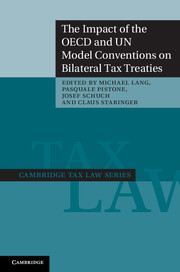Book contents
- Frontmatter
- Contents
- Contributors
- Preface
- Table of cases
- Table of statutes
- General report
- 1 Argentina
- 2 Australia
- 3 Austria
- 4 Belgium
- 5 Brazil
- 6 Canada
- 7 Chile
- 8 China
- 9 Colombia
- 10 Croatia
- 11 The Czech Republic
- 12 Estonia
- 13 Finland
- 14 France
- 15 Germany
- 16 Hong Kong
- 17 Hungary
- 18 India
- 19 Italy
- 20 Lebanon
- 21 Liechtenstein
- 22 The Netherlands
- 23 New Zealand
- 24 Norway
- 25 Peru
- 26 Poland
- 27 Portugal
- 28 Romania
- 29 The Russian Federation
- 30 Serbia
- 31 Slovakia
- 32 Slovenia
- 33 Spain
- 34 Sweden
- 35 Uganda
- 36 The UK
- 37 The USA
- Index
- References
26 - Poland
Published online by Cambridge University Press: 05 November 2014
- Frontmatter
- Contents
- Contributors
- Preface
- Table of cases
- Table of statutes
- General report
- 1 Argentina
- 2 Australia
- 3 Austria
- 4 Belgium
- 5 Brazil
- 6 Canada
- 7 Chile
- 8 China
- 9 Colombia
- 10 Croatia
- 11 The Czech Republic
- 12 Estonia
- 13 Finland
- 14 France
- 15 Germany
- 16 Hong Kong
- 17 Hungary
- 18 India
- 19 Italy
- 20 Lebanon
- 21 Liechtenstein
- 22 The Netherlands
- 23 New Zealand
- 24 Norway
- 25 Peru
- 26 Poland
- 27 Portugal
- 28 Romania
- 29 The Russian Federation
- 30 Serbia
- 31 Slovakia
- 32 Slovenia
- 33 Spain
- 34 Sweden
- 35 Uganda
- 36 The UK
- 37 The USA
- Index
- References
Summary
The relevance of the OECD and the UN Model Conventions and their Commentaries for the interpretation of Polish tax treaties
Since the 1970s Poland has concluded over eighty tax treaties on the avoidance of double taxation. Most of the treaties that form this network closely follow the OECD Model Tax Convention on Income and on Capital (OECD Model), despite the fact that Poland reached the status of a regular observer to the OECD no earlier than July 1991 and became an OECD Member country in 1996. The treaty concluded in the 1970s with the Federal Republic of Germany was the first treaty whose structure and wording of the articles corresponded in general with the first OECD Model of 1963. It should be noted, however, that the above-mentioned treaty lacked the non-discrimination clause, deviating from the Model in this respect. The treaty with Germany became a kind of a model convention for the treaties concluded by Poland in the following years. The constantly increasing number of Polish tax treaties was the natural consequence of the increasing significance of economic relations with the countries of Western Europe. The treaties signed during that time were in principle based on the 1977 OECD Model. Poland has also concluded some treaties with Asian developing countries like Malaysia, Pakistan and Thailand, but these did not have any economic significance as they were motivated mostly by political considerations – direct investments between those countries and Poland did not exist, and economic relations were rather poor. These treaties were influenced by the United Nations Model Double Taxation Convention between Developed and Developing Countries (UN Model), mostly in respect of the taxation of profits derived by permanent establishments (PEs) and profits from transport.
Poland's status as an OECD Member country coincided with its regaining full independence and the burst of investments this entailed, as well as with the disintegration of the Union of Soviet Socialist Republics. The former members of the Council for Mutual Economic Assistance (an economic organization comprising the countries of the Eastern Bloc along with a number of communist states elsewhere in the world) aimed to build a network of tax treaties that would replace the former multilateral agreements. In the 1990s Poland concluded most of its present tax treaties, the majority of which were with the countries from the former Soviet Bloc. Some old tax treaties have been replaced by new ones which better suit the current economic environment. At this point in time, most of Poland's tax treaties are based on the OECD Models of 1963, 1977 and 1992.
- Type
- Chapter
- Information
- Publisher: Cambridge University PressPrint publication year: 2012

